Movie Review – Jungle Book, The
With the release of The Jungle Book in 1967, the end of an era was achieved. In a sad coda to the films production, Walt Disney, the man responsible for creating the Disney brand, died before the film was completed, from lung cancer. As the 19th official animated film in the Disney canon, The Jungle Book is a dramatic misfire of gargantuan proportions, lacking the subtlety and magic that had inhabited almost all of the previous Walt-produced features since Snow White. Lacking real narrative substance, substituting it for character instead, was a risk Walt wanted to take with this, his swansong as producer. It ultimately didn’t pay off, although only time has revealed this in the years between original release and today.
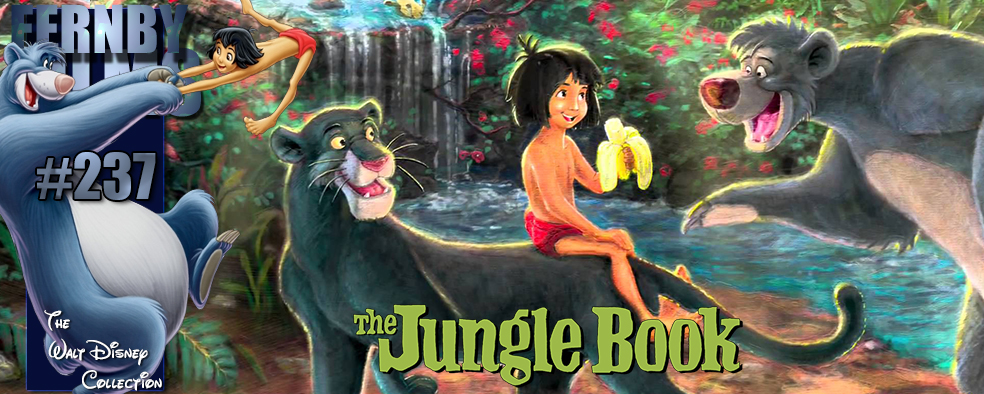
– Summary –
Director : Wolfgang Reitherman
Cast : Phil Harris, Sebastian Cabot, Bruce Reitherman, Sterling Holloway, George Sanders, Louis Prima, J Pat O’Malley, Verna Felton, Clint Howard, Chad Stuart, Lord Tim Hudson, John Abbott.
Year of Release : 1967
Length : 90 Minutes
Synopsis: A young human child is raised in the deepest jungles of India by animals, and when his safety is threatened, a bear, a panther and some songs must accompany the boy back to human civilisation. Various misadventures occur throughout.
Review :Disappointing swansong from Walt Disney’s hand as producer, The Jungle Book has only the barest storyline going for it (a grossly underwhelming mistake from Walt) and has some sort of problem deciding on a tone and angle for it’s style: the animation and the music never quite match, although the casting is pretty much spot on. Hard to imagine that after this, the quality of Disney feature animation went even further downhill.
*********************
With the release of The Jungle Book in 1967, the end of an era was achieved. In a sad coda to the films production, Walt Disney, the man responsible for creating the Disney brand, died before the film was completed, from lung cancer. As the 19th official animated film in the Disney canon, The Jungle Book is a dramatic misfire of gargantuan proportions, lacking the subtlety and magic that had inhabited almost all of the previous Walt-produced features since Snow White. Lacking real narrative substance, substituting it for character instead, was a risk Walt wanted to take with this, his swansong as producer. It ultimately didn’t pay off, although only time has revealed this in the years between original release and today.
Sitting down to watch Jungle Book for the very first time, since as a child I found the film too boring and slow to sit through in a single viewing, I was amazed at just how ordinary the film actually is; from the sketchy artwork to the strangely off-kilter soundtrack, The Jungle Book never quite knows what to make of itself and consequently, isn’t much of anything at all.
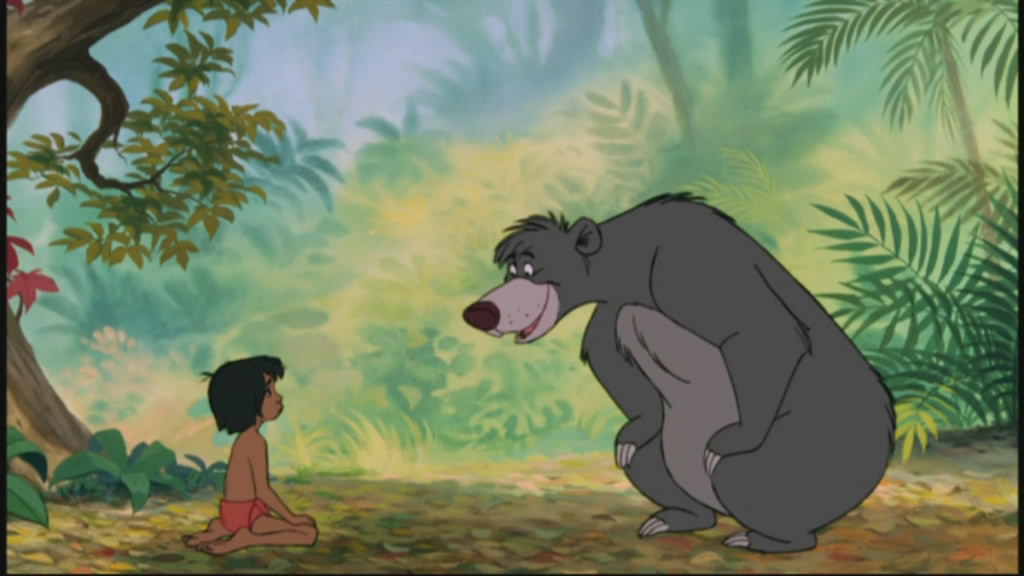
Mowgli, voiced by Bruce Reitherman (son of lead animator and director Wolfgang Reitherman, in a weird nepotistic move) is a young human child left to fend for himself in the jungles of darkest India, after an undisclosed accident leaves him without parents or human contact. Raised by a family of wolves, and eventually sent back to live with his human kind, The Jungle Bookis essentially a road movie, withMowgli’s journey to the nearby village with bear Baloo and panther Bagheera trying to lead him to safety. Along the way, Mowgli encounters a herd of militaristic elephants, led by the pompous Colonel Hathi, an enormous python with hypnotic eyes in Kaa, a crazy jazz-styled orangutan named King Louie (who wants the secret of fire) and finally, the dangerously nasty Shere Kahn, a tiger who would love nothing better than to kill Mowgli before he grows to become a dangerous animal-killing human like the rest. Baloo, voiced by Phil Harris, is the forerunner to the Little John character from Disneys later Robin Hood attempt, even voiced by Harris again in that adventure. Baloo is a carefree, slack (if slightly egotistic) bear who befriends Mowgli, teaching him all about the “Bare Necessities” of life, a hint of Hakuna Matata coming out in a key song sequence about simple living and living simply. Bagheera, the wise panther who attempts to lead Mowgli out of the jungle and back to civilisation, is voiced by Sebastian Cabot, and while I understand the need for dramatic weight from this “adult” character, the motivations and story twists are simply staggeringly obtuse. Bagheera and Mowgli argue and separate numerous times throughout the film, as Bagheera finds himself frustrated with the boy’s insistence on living in the jungle. In an act of petulance, Bagheera abandons Mowgli to jungle life (temporarily of course, as he is soon needed to rescue both Mowgli and Baloo from danger) and to me, this struck the wrong chord. It almost smacks of Disney saying that if you argue with your parent enough, you’ll be left alone just like you want: perhaps not the best moral compass with which to direct young minds. Still, it’s a minor quibble, but a quibble nonetheless.
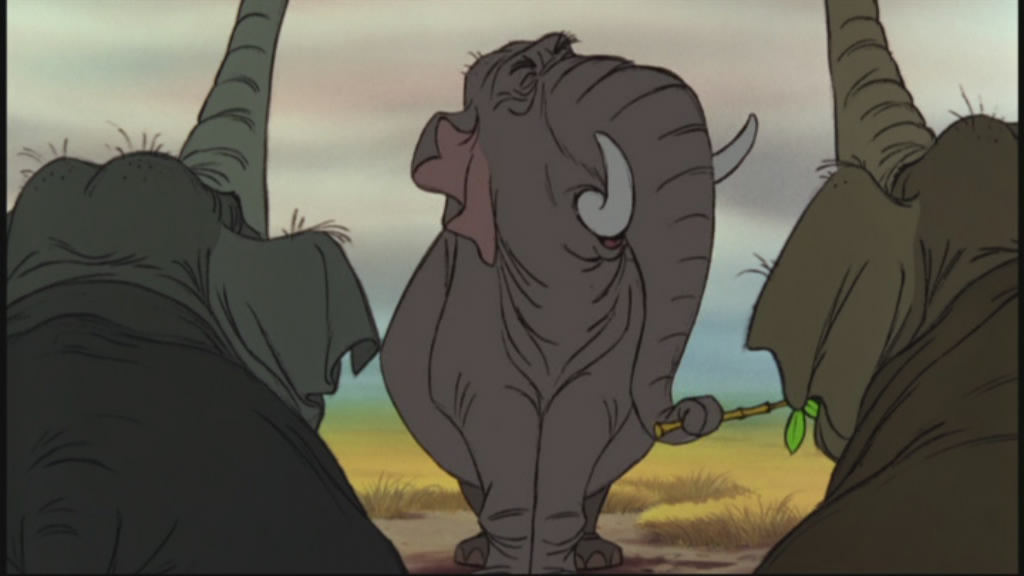
Musically, the film is all over the place. There’s elements of jazz, pop, barbershop and traditional score to be found here, a jangling disconcordance of musical style that neither enhances nor advances the story in a way you’d consider entertaining. The songs by themselves are quite cool, especially “The Bare Necessities” and “I Wanna Be Like You”, however, they never really jibe with the film itself. And then the coup de graceof mediocrity, a decidedly obtuse barbershop quartet towards the end (sung by vultures who look strangely like a famous English rock band famous in the 60’s and 70’s for mop-top haircuts.. why?) is about as low as you get in Disney film classics. The traditionally Disney-esqe “Bare Necessities”, coupled with the jazz-inspired “I Wanna Be Like You” and then a barbershoptrack at the end? What were they thinking? There’s no consistency, no through-motif with which to allow an audience to develop an emotional bond, something I believe to be a key to a successful film score.
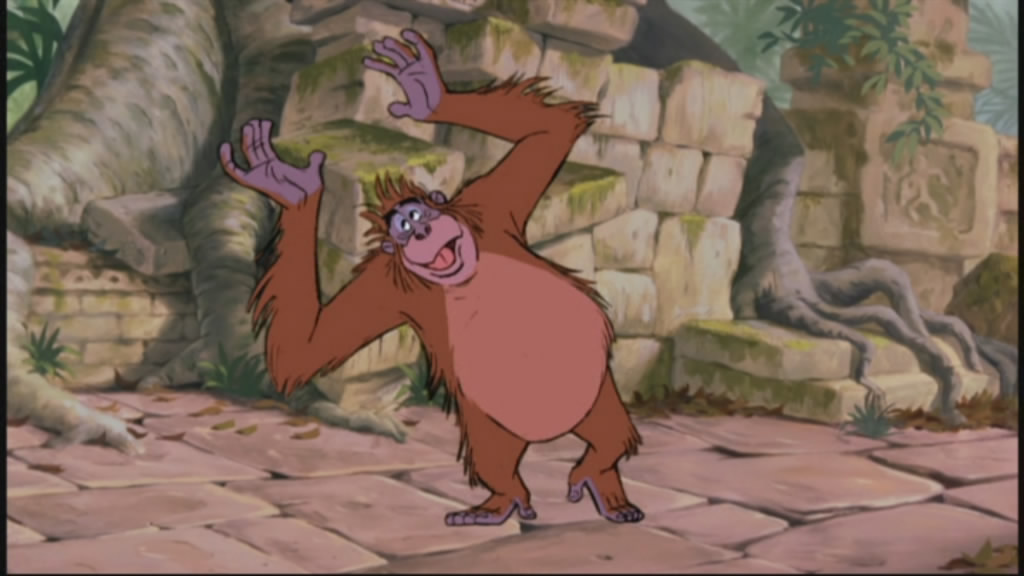
Artistically, the film is a strange animal. The artwork appears rushed, like a low-budget Looney Tunesshort that Warner Bros. would put out every other week. Linework is sketchy, the colouring a little bland (to be honest, the film feels flat, lacking the vibrancy that previous films like Sleeping Beauty, Snow White, Bambi and Cinderellaall enjoyed) and the animation (especially on Baloo) is wobbly at best. The animation on Mowgli is pretty decent though, but this isn’t enough to make up for deficiencies in other areas. There’s a disturbing lack of energy about the films style, the jungle is almost a dead-boring place to be, if The Jungle Book is anything to go by.
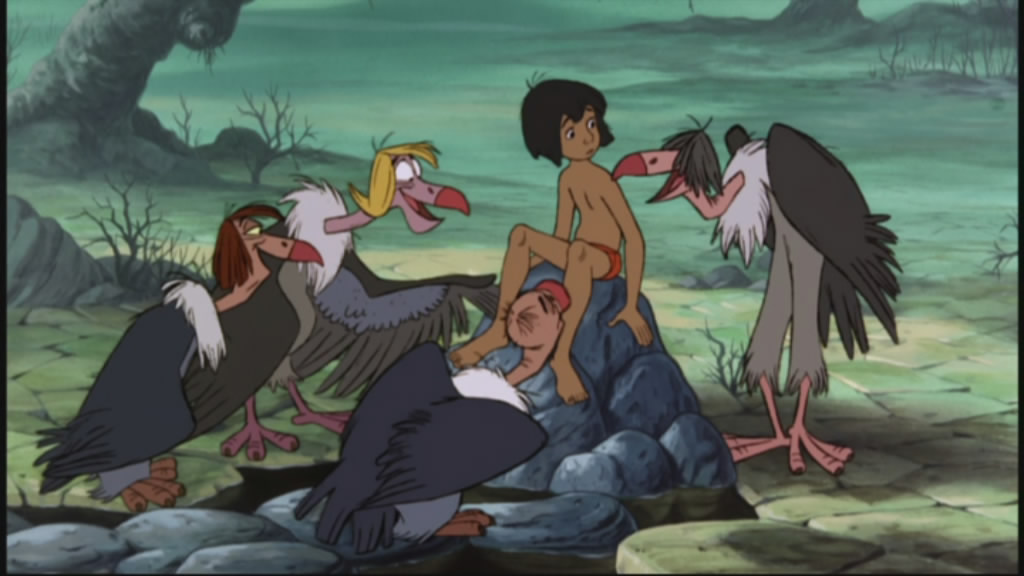
The pacing of the story appears strained to breaking point by a monotony of nothingness: the characters don’t really do a heck of a lot, and when they do, it’s not very interesting. And the film takes an age to kick into action: the characters are introduced in such a way that it’s barely coherent to anybody watching for the very first time: especially young kids. And by the time Mowgli and Baloo start their journey, too much time has passed with limited character development for us to care. It’s all a bit… ho hum. It takes Shere Kahn to arrive on screen for the film to really take off, his slimy, smarmy villainousness is a little too late, though, to save The Jungle Book from mediocrity.
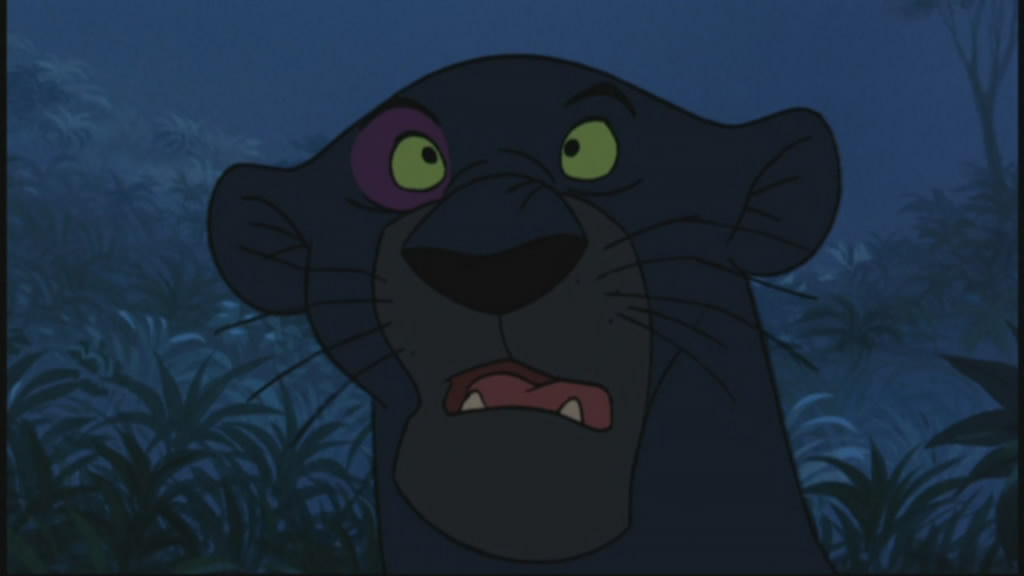
Is The Jungle Book a worthy entrant into the Disney canon? Well, considering it’s already in there, it’s hardly a fair question, but does the film stack up under scrutiny by todays standards? No, not really. It’s a misfire, a lacklustre animated effort which detracts from the Disney brand rather than adding to it. Kids today might find it actually pretty boring, although animation purists will look upon it with less discerning eyes even still. That said, The Jungle Book, even for it’s background of animation and vocal history, is barely worth a mention alongside other Disney classics. Representative of the lower echelon of their slow decline through the 70’s and 80’s, The Jungle Book marked a departure from the “classic” Disney animated triumphs.






